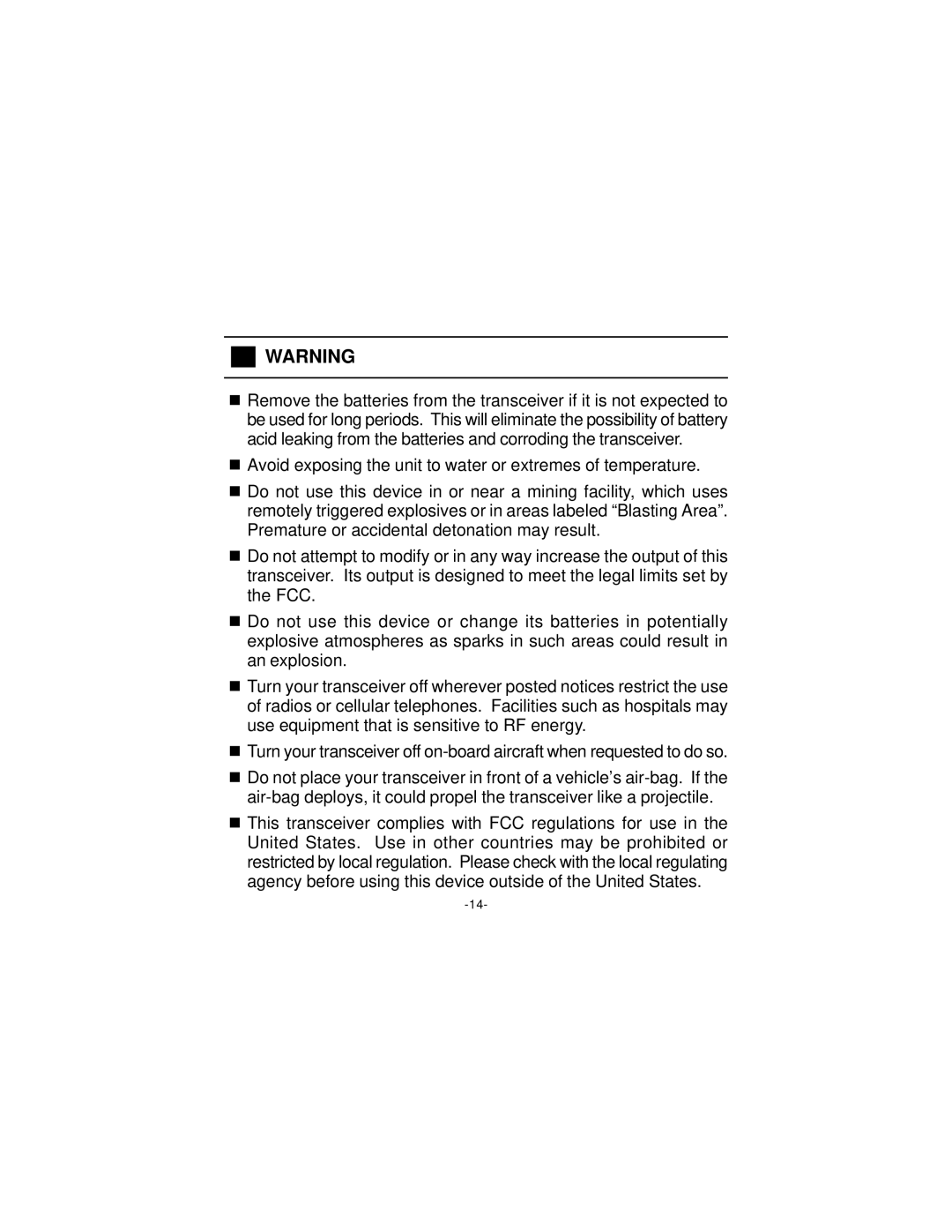WARNING
nRemove the batteries from the transceiver if it is not expected to be used for long periods. This will eliminate the possibility of battery acid leaking from the batteries and corroding the transceiver.
nAvoid exposing the unit to water or extremes of temperature.
nDo not use this device in or near a mining facility, which uses remotely triggered explosives or in areas labeled “Blasting Area”. Premature or accidental detonation may result.
nDo not attempt to modify or in any way increase the output of this transceiver. Its output is designed to meet the legal limits set by the FCC.
nDo not use this device or change its batteries in potentially explosive atmospheres as sparks in such areas could result in an explosion.
nTurn your transceiver off wherever posted notices restrict the use of radios or cellular telephones. Facilities such as hospitals may use equipment that is sensitive to RF energy.
nTurn your transceiver off
nDo not place your transceiver in front of a vehicle’s
nThis transceiver complies with FCC regulations for use in the United States. Use in other countries may be prohibited or restricted by local regulation. Please check with the local regulating agency before using this device outside of the United States.
